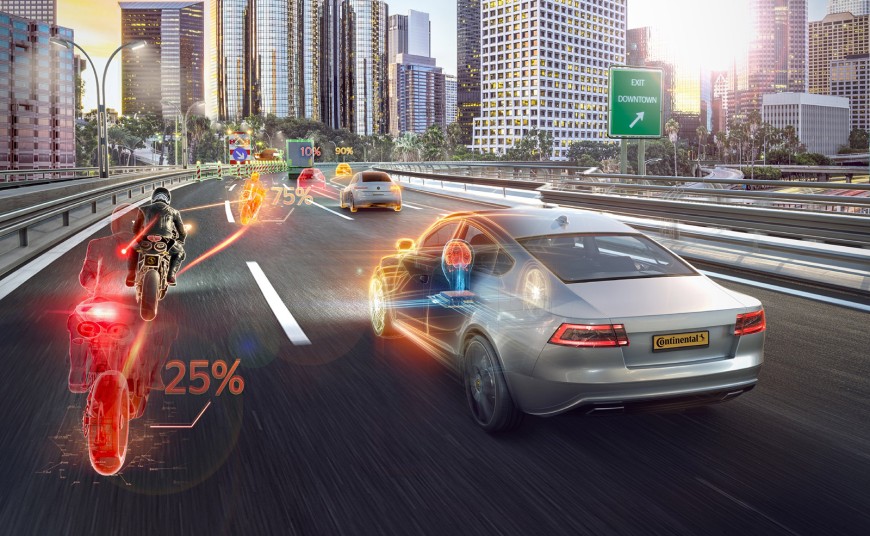AI for automated driving
From research to practice: PRORETA 5 cooperation successfully concluded
2022/10/26
Developing building blocks for automated urban driving to improve road safety in the city was the aim of the PRORETA 5 project that has now been brought to a successful conclusion. This also marked the end of the 20-year interdisciplinary research cooperation between Continental, the Technical University of Darmstadt, the University of Bremen, and the Technical University of Iaşi in Romania.
Many of Continental's research results from the past four PRORETA projects have already been further developed to series maturity. These are already part of modern vehicles today, for instance in the emergency brake assist or in automated driving on motorways. This confirms that cooperations between industry and research help to develop solutions that help to prevent accidents, relieve drivers and make autonomous mobility a reality.
“For over 20 years, the PRORETA project family set standards with its interdisciplinary research and direct transfer in the fields of assisted and automated driving, and pioneered solutions that are now in series production,” says Professor Steven Peters, Head of the Institute of Automotive Engineering (FZD) in the Department of Mechanical Engineering at TU Darmstadt.
Recognising complex traffic situations with artificial intelligence
The aim of the research project PRORETA 5 (2019 to 2022) was to investigate artificial intelligence methods for automated driving. Under the motto of “Building blocks for automated urban driving to improve traffic safety in the city”, it focused on situation understanding and motion planning in automated vehicles in urban traffic. The project was dedicated to one of the most challenging tasks for automated driving: recognising complex traffic situations in inner cities and the question of how algorithms can use sensor data to derive the right driving decisions in these situations.
For instance, at unregulated intersections, it can be challenging to correctly interpret all the objects with regard to the direction of movement, intent and priority without human intervention. In order to create new solutions for this, the project included the development of new modules for artificial intelligence. Continental fitted a vehicle with sensors and high-performance computers to enable the researchers to test the resulting functional and verification methods for the automated driving system directly under real conditions. The methods included the multimodal prediction of an object's dynamic behaviour, specification and testing compliance with traffic rules, and logic-based testing to detect unsafe behaviour of AI modules.
Project participations of TU Darmstadt
TU Darmstadt participated in the project with two doctoral candidates from the Institute of Automotive Engineering (FZD) in the Department of Mechanical Engineering, and one doctoral candidate from the Institute of Control Methods and Intelligent systems (ris) in the Department of Electrical Engineering and Information Technology. As part of the project, ris developed a new type of trajectory planner that always calculates the future trajectory of the test vehicle using “Monte Carlo Tree Search”.
At FZD, a logic-based module was developed to validate the AI-based module results that, in the event of uncertainties in the automated systems, will request an emergency trajectory such as a braking manoeuvre to a standstill in order to minimise the risk of an accident. FZD was also responsible for the integration and testing of the entire automated system. A method for the specification and testing of compliance with traffic rules was also developed.
Joint development of future technologies beyond the doctoral thesis
Many research results from the five PRORETA projects have been incorporated in practical applications such as automated driving on motorways or automatic emergency brake assist. Andree Hohm, doctoral candidate at PRORETA 2 and now head of the “driverless” innovation department at Continental's Autonomous Mobility business unit: “What we developed in the first projects can now be seen in road traffic, and keeps our roads safe day after day.”
Continental/sip


